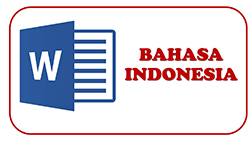Paradigma Tradisionalisme, Modernisme dan Postmodernisme dalam Pendidikan Islam
Abstract
This research discusses the paradigms of traditionalism, modernism and postmodernism in Islamic education. The approach used in this research is qualitative with a library study type of research. Researchers try to dig up information and knowledge from various existing literature and references. Literature that serves as a reference about educational paradigms takes the form of books, notes, newspapers, research journals, and comments from educational figures. After all the data has been collected, the step to analyze the data is content analysis. by comparing and analyzing phenomena with theory, then the researcher analyzes the data and draws conclusions. The results of this study reveal that the paradigm developed to the postmodern paradigm as part of the critique of the modern paradigm. Postmodernism is a style of thinking that was born as a reaction to modernist thought which was considered to have many shortcomings and caused various human problems. The postmodern education paradigm refers to a curriculum that can change at the implementation level because the object of implementation, namely students also participate in it (decentralization). On the other hand, the postmodernism curriculum gives students a role as key players in the curriculum. Students can think critically, freely, and be creative with the knowledge they gain. However, this creative thinking process must also receive guidance from teachers who serve as facilitators or consultation media for students so that they do not get off track
Downloads
References
Bloland, H. G. (2005). Whatever Happened to Postmodernism in Higher Education?: No Requiem in the New Millennium. The Journal of Higher Education, 76(2), 121–150. https://doi.org/10.1353/jhe.2005.0010
Dharani, P., S, G. H., & Lakshmi. (2020). Traditional Versus Modern Education System : A Deep Dive. High Technology Letters, 26(6), 206–219.
Djafri, M. T., BN, A. M. T., Tajuddin, M. S., & Al Rasyid, H. H. (2023). Pemikiran Keagamaan di Indonesia (Analisis terhadap Pemikiran Tradisionalisme dan Modernisme Islam). AL-Qiblah: Jurnal Studi Islam Dan Bahasa Arab, 2(2), 144–156. https://doi.org/10.36701/qiblah.v2i2.971
Ernest, P. (1997). Chapter 3: The Epistemological Basis of Qualitative Research in Mathematics Education: A Postmodern Perspective. Journal for Research in Mathematics Education. Monograph, 9. https://doi.org/10.2307/749945
Hamid, A. (2016). Dakwah Dalam Perspektif Paradigma Tradisionalisme Dan Reformisme. Kordinat: Jurnal Komunikasi Antar Perguruan Tinggi Agama Islam, 15(1), 89–104. https://doi.org/10.15408/kordinat.v15i1.6310
Jalaludin, J. (2020). Persimpangan Pendidikan Islam Tradisional Dan Modern Di Indonesia: Mencari Titik Temu. Nur El-Islam : Jurnal Pendidikan Dan Sosial Keagamaan, 7(1), 184–197. https://doi.org/10.51311/nuris.v7i1.179
Khoiruddin, M. (2018). Pendidikan Islam tradisional dan modern. Tasyri’, 25(2), 92–105.
Makhamatov, T. M., Khaziyev, V. S., Makhamatov, T. T., Yulbayev, R. Z., & Giuliodori, L. (2021). Existential aspects in modern education. SHS Web of Conferences, 103. https://doi.org/10.1051/shsconf/202110301022
Mastuhu. (1994). Dinamika Sistem Pendidikan Pesantren: Suatu Kajian tentang Unsur dan Nilai Sistem Pendidikan Pesantren. INIS.
Nisa’, Rofiatun. (2019). Internalisasi Pendidikan Karakter dalam Gerakan Literasi Berbasis Kearifan Lokal. Cendekia, 11(1), 11-18 https://doi.org/10.37850/cendekia.v11i1.89
O’Neil, W. F. (2002). Ideologi - Ideologi Pendidikan (Terjemahan). Pustaka Pelajar.
Pllana, D. (2019). Creativity in Modern Education. World Journal of Education, 9(2), 136. https://doi.org/10.5430/wje.v9n2p136
RI, P. (2003). Undang-undang (UU) No. 20 Tahun 2003 tentang Sistem Pendidikan Nasional [JDIH BPK RI]. JDIH Badan Pemeriksa Keuangan Republik Indonesia.
Setiawan, B. (2021). Integrasi Islam Dan Sains Pada Pengembangan Universitas Islam Negeri Di Indonesia. IndraTech. http://stmikindragiri.ac.id/ojs/index.php/jit/article/view/83
Stinson, D. W., & Bullock, E. C. (2012). Critical postmodern theory in mathematics education research: A praxis of uncertainty. Educational Studies in Mathematics, 80(1–2), 41–55. https://doi.org/10.1007/s10649-012-9386-x
Sudirana, I. W. (2019). Tradisi Versus Modern: Diskursus Pemahaman Istilah Tradisi dan Modern di Indonesia. Mudra Jurnal Seni Budaya, 34(1). https://doi.org/10.31091/mudra.v34i1.647
Sugiyono. (2019). Metodelogi Penelitian Kuantitatif dan Kualitatif Dan R&D. Bandung: Alfabeta.
Suhendra, A. (2016). Hakikat dan Proses Pendidikan Lintas Perspektif (Tradisionalisme, Modernisme, Dan Postmodernisme). Jurnal Darul ’Ilmi, 04(01).
Syam, S. (2018). Tradisionalisme Islam Suatu Karakter Dan Pola Pengembangan Islam Di Indonesia. Al-Hikmah: Jurnal Dakwah Dan Ilmu Komunikasi. https://www.ejournal.uinib.ac.id/jurnal/index.php/alhikmah/article/view/90/0
Tangahu, W., Rahmat, A., & Husain, R. (2021). Modern Education in Revolution 4 . 0. International Journal of Innovations in Engineering Research and Technology, 8(1), 3–7. https://repo.ijiert.org/index.php/ijiert/article/view/2/1
Verdiyeva, T. (2021). Prospects for the application of active learning methods in modern education. Revista on Line de Política e Gestão Educacional. https://doi.org/10.22633/rpge.v25iesp.3.15587





.png)










